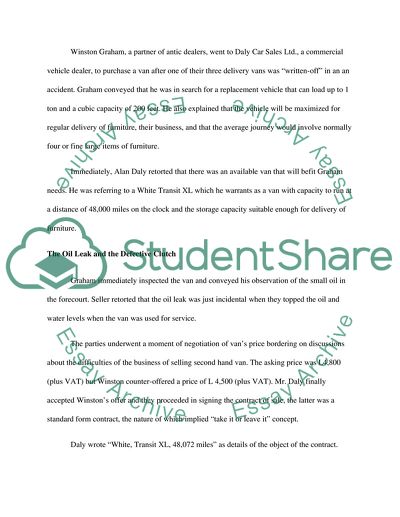Cite this document
(“Sale of Goods to a Consumer Case Study Example | Topics and Well Written Essays - 2500 words - 1”, n.d.)
Sale of Goods to a Consumer Case Study Example | Topics and Well Written Essays - 2500 words - 1. Retrieved from https://studentshare.org/marketing/1753933-bus-law
Sale of Goods to a Consumer Case Study Example | Topics and Well Written Essays - 2500 words - 1. Retrieved from https://studentshare.org/marketing/1753933-bus-law
(Sale of Goods to a Consumer Case Study Example | Topics and Well Written Essays - 2500 Words - 1)
Sale of Goods to a Consumer Case Study Example | Topics and Well Written Essays - 2500 Words - 1. https://studentshare.org/marketing/1753933-bus-law.
Sale of Goods to a Consumer Case Study Example | Topics and Well Written Essays - 2500 Words - 1. https://studentshare.org/marketing/1753933-bus-law.
“Sale of Goods to a Consumer Case Study Example | Topics and Well Written Essays - 2500 Words - 1”, n.d. https://studentshare.org/marketing/1753933-bus-law.


